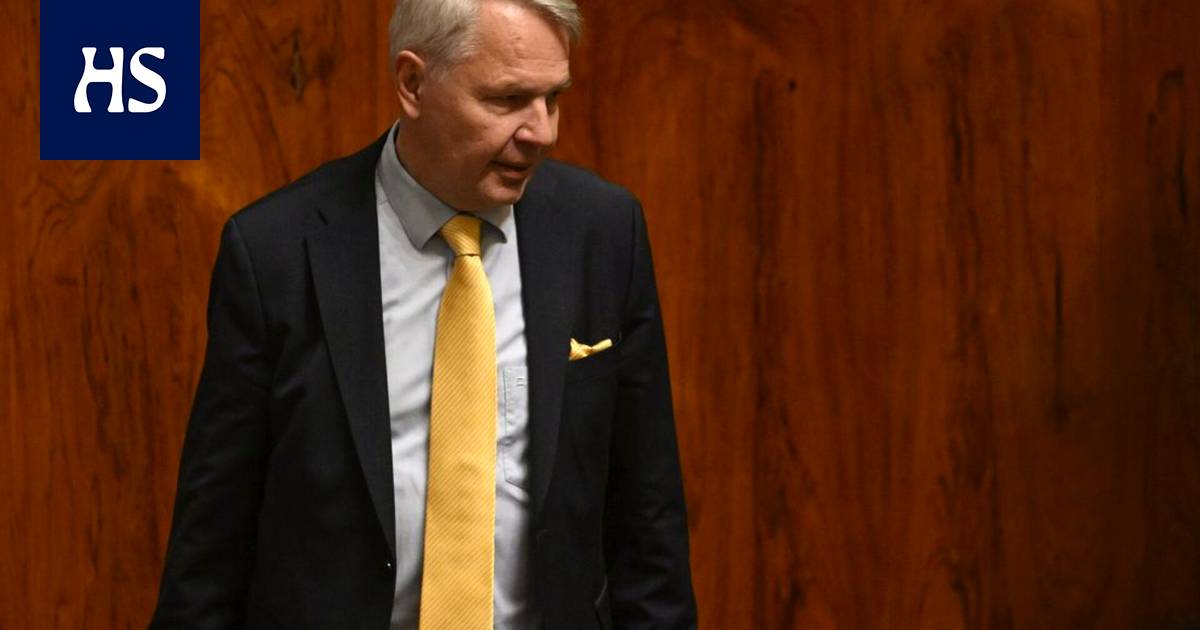Policy|Deportations of spies
The Ministry of Transport also told Petteri Orpo, who will form the next government, about the deportation decision in advance, Haavisto says.
Foreign minister Pekka Haavisto (vihr) tells STT that Finland has decided to openly inform on Tuesday about the deportation of nine Russian embassy employees due to the exceptionally large number of them.
“This is a big enough group when nine deportations are carried out, so it was decided that this will be reported, and when it is assumed that Russia will take its own countermeasures, then those countermeasures will be understood and we will know the scale of the issue,” Haavisto said on Wednesday.
When European countries expel Russian spies, Russia has traditionally expelled the same number of diplomats from that country in return.
Those deported from Finland had worked on intelligence missions and violated the Vienna Convention on Diplomatic Relations, the Government said in its press release yesterday. Illegal intelligence activity is espionage.
Finland the information line is only open for the deportation decision itself. Haavisto did not go to STT to open, for example, the position of spies to be deported in the Russian embassy.
“I do not interfere with the level of these persons’ titles. Often it is about people who are diplomats in covert roles, but in reality they have other tasks. This phenomenon has also existed in other European countries and other Nordic countries.”
Haavisto did not comment on what the spies being deported to the Russian intelligence agencies represented, even though the backgrounds of those being deported are known to the protection police (supo). According to the minister, they represented “different security organizations” in Russia.
Haavisto also did not reveal whether the deportees had families in Finland or by when they must leave Finland. According to Haavisto, Finland has held an interview with the Russian ambassador about the matter and explained the reasons for the deportation decision.
Haavisto did not say anything about what kind of illegal intelligence activities the deportees carried out or whether it has endangered Finland’s national security.
“I can’t go into details here either. Tp-utva has processed the matter and the information is based on the material obtained by the protection police, but unfortunately I can’t open it at all,” says Haavisto.
Finland has not traditionally reported on the deportation of individual Russian spies from Finland. According to Haavisto, this line of silence is justified, for example, by the fact that individual Finnish diplomats who become targets of countermeasures have been wanted to be protected from the public.
Several NATO countries in Europe have openly announced the deportation of Russian spies. According to Haavisto, Finland’s newly minted NATO membership is still not the reason for the changed information line.
“We do not compare ourselves to other EU countries or NATO countries in this situation, but make decisions independently.”
According to Haavisto, this is not a permanent line change, but the information line for possible future deportations will continue to be decided on a case-by-case basis. On behalf of the new government, Haavisto does not want to present policies on the matter.
I don’t hurt during the government negotiations, there was a discussion within the ruling ministry about whether it was appropriate for them to make a decision on the matter or whether they should have waited for the new government to start work.
“There has been a discussion about this issue in the Ministry of Supply and the new government [kokoomuksen puheenjohtaja Petteri Orpon (kok)] with, and he has been informed about this,” Haavisto said.
According to Haavisto, Orpo was informed about the factors that influenced the decision, but the foreign minister does not say that Orpo influenced the decision. The competences of the Ministry of Transport were also discussed with the Chancellor of Justice. Haavisto did not reveal in more detail what the chancellor’s view on the matter was.
“Even though we are a delivery ministry, we have to make decisions quickly in pressing situations. — There has been a discussion with the Chancellor of Justice about the rights of the executive ministry in such situations,” Haavisto said.
According to Haavisto, delaying the deportation decision would not have been of any use in the situation. According to him, the prolongation of the board negotiations at Säätytalo did not affect the timing of the deportation decision in any way.
On Tuesday, tp-utva, or the president, issued a statement about the deportation Sauli Niinistön and the joint meeting of the Ministerial Committee on Foreign Affairs and Security Policy. Its composition includes key ministers, such as prime minister, foreign minister, and defense minister.
#Deportations #spies #Haavisto #deportations #Russians #openly #announced #expected #Russian #countermeasures









